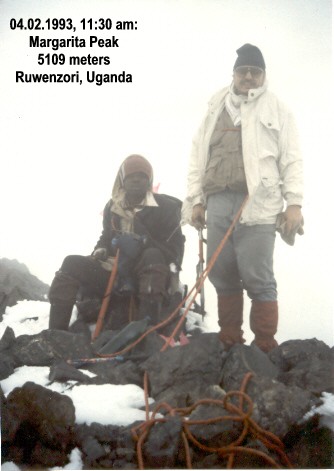Auszüge; zum vollen Artikel » hier klicken
THE New Partnership for Africa's Development was formed by African leaders, in Abuja, Nigeria, in October 2001.
The prime movers of the NEPAD project were Presidents Thabo Mbeki of South Africa, Olesugun Obasanjo of Nigeria, Abdoulaye Wade of Senegal and Abdelaziz Bouteflika of Algeria. NEPAD is basically a promise by African leaders, based on shared vision and beliefs, to urgently:
- eliminate poverty on the African continent;
- work towards the sustainable growth and sustainable development of every country on the African continent; and;
- actively participate in the global economy and political structures.
In layman's parlance, therefore, NEPAD can be defined as an economic programme aiming at growth and sustainable development, eliminating poverty and ultimately empowering Africa to benefit from globalisation.
(…)
I have absolutely no problem in accepting the concept of NEPAD as a welcome visionary approach in the management of the African body politic. However, it is my humble view that before embracing the very noble concept of NEPAD, Africa should go back to basics first.
(…)
The concept of NEPAD is very tempting on paper. But then, Africa should not just conceptuliase brilliant ideas and programmes that are never followed by any serious implementation process. Put alternatively, African leaders should not only talk the talk but they should also walk the talk. (…)
(…) Almost six years after the formation of NEPAD, there is absolutely nothing one can identify, on the African continent, as having benefited from the NEPAD concept.
(…)
The crucial tool of NEPAD is the African Peer Review Mechanism. This tool should make African leaders commit themselves to behave responsibly when it comes to the observance of democratic values, sustainable economic management and conflict resolution. I make no apology in strongly advocating that NEPAD should make it compulsory for other African countries to interfere in undemocratic political systems such as the one presently obtaining in Zimbabwe.
I respect the NEPAD concept because at least for the first time in history, Africa is seeking to look forward and forget the past; not asking for foreign aid but for partnership. As Africans, our destiny is in our own hands. We should move ourselves away from being underdeveloped and excluded in a globalising world.
(…)
Whilst I accept that the developed world, particularly Europe, helped in the pauperisation of Africa, especially during the era of slavery and colonialism, we as Africans should now take responsibility of our own political and economic emancipation.
Yes, I agree that the G-8 has been part of Africa’s problems and thus it must be part of its solution. But as Africans, we should see to it that the NEPAD dream does not go awry NEPAD marks a new beginning for Africa. As Africans, we must see to it that within a specific time frame, the NEPAD dream is realised. Failure is not an option.
By Obert Chaurura Gutu,
New Zimbabwe, London.
(Hervorhebungen KDL)
Natürlich stimme ich der Tendenz des Artikels voll zu. Wenn der Autor allerdings schreibt, NEPAD not asking for foreign aid but for partnership, dann natürlich nur in der Theorie (talk talk). In der Realität funktionieren die großen Konferenzen (wo ist da die Basis vertreten, um die Stärken Afrikas anzuzapfen?) und das NEPAD-Sekretariat in Süd-Afrika auch nur mit Donor-Geldern und werden entsprechend verprasst, ohne dass das interne Potenzial Afrikas genutzt würde. Aber die NEPAD-Rhetorik wird natürlich genauso gut (bzw. falsch) von EZ-Experten und Politikern des Nordens gepflegt - und da ist dann die Interessenkongruenz!



